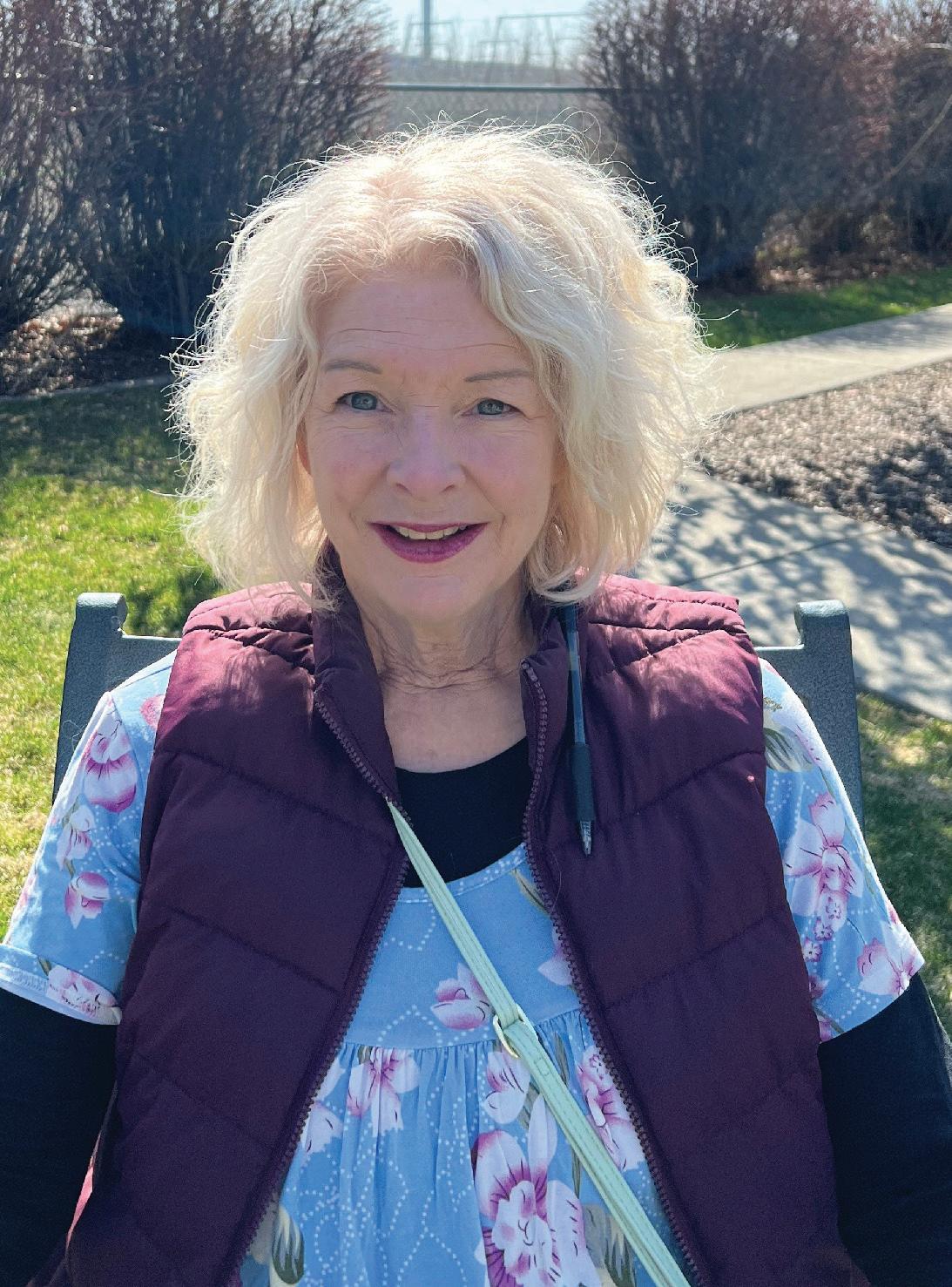
3 minute read
Rethinking FIRST AID: beyond broken bones and bandages
When someone has a cut or a sprain, we know to get out the first-aid kit. But what should we do when a person we care about is experiencing a mental health or substance use issue? Even though these challenges may not show up physically, they are still very real. Below we offer some handy tools that help us look out for each other – especially in agricultural communities.
Strengthen the community support systems
Advertisement
Common gathering places – like the morning coffee spot, a school, church or even the feed store – are often important places to seek community, combat isolation and loneliness, and help to manage everyday challenges. When these natural support hubs are strengthened by leaders who have been trained through Comprehensive Healthcare’s community education classes like Suicide Awareness for Everyone (SAFE) and Mental Health First Aid, these people become important lookouts in the community’s landscape. To learn about our training and development services, contact our program coordinator at commed@comphc.org or call (509) 575-4084.
Check in on your neighbors
When you stop by and ask your neighbors small questions, it can help their mental health in large ways. Here are some examples of questions you can ask:
“How have you been feeling?”
“I’m stopping by the grocery store; let me know if you need anything.”
“How’s your day/week going?”
Know the symptoms of depression
Share mental and behavioral health resources with others
At Comprehensive Healthcare, we offer a wide range of innovative behavioral health care services to meet individual, family and community needs services such as: crisis response, adult outpatient therapy, family and youth services, mental health first aid training, addiction and substance abuse disorder services and more at www.comphc.org. In a crisis, call 1-800-572-8122 – 24 hours a day, 7 days a week, or (509) 575-4084 for an initial appointment or 9-8-8 for 24/7 suicide and crisis care.
The signs and symptoms of depression affect everyone differently. If someone you know has been experiencing these symptoms for more than 14 days, it’s time to have a conversation and link them with resources. Some symptoms of depression are:
• A change in a person’s routines or social activities, such as, in agricultural communities, you may notice a decline in the care of domestic animals or in the appearance of the farmstead
• Experiencing feelings of sadness, tearfulness, emptiness, or hopelessness
• Feelings of worthlessness or guilt, fixating on past failures or self-blame
• Loss of interest or pleasure in most or all normal activities, such as work, hobbies or sports
• Sleep disturbances, including insomnia or sleeping too much
• Unexplained physical problems, such as back pain or headaches
• Trouble thinking, concentrating, making decisions and remembering things on a farm, could lead to an increase in accidents
• Frequent or recurrent thoughts of death, suicidal thoughts, suicide attempts or suicide
Addressing the challenges of seeking mental health support in agricultural communities
With the growing need for behavioral health services, Comprehensive Healthcare continues to develop creative solutions to ensure people can access care when they need it. Here’s how we’re solving some of the challenges people face in the agricultural communities we serve:
Challenge Solution
The drive from my farm to a behavioral health clinic could take hours; how can I access behavioral healthcare services when it’s such a long commute?
During the pandemic, Comprehensive Healthcare’s secure telehealth platform enabled clients to access services online. This popular service, post-pandemic, reduces the time and cost of traveling, increases access to care, and creates a quality interaction between individuals and their clinicians – similar to in-person appointments –to provide overall client satisfaction.
Simply call Comprehensive Healthcare at (509) 575-4084 and ask about our telehealth options.
My family doesn’t have health insurance. How can I get care?
When you reach out to Comprehensive Healthcare to request services, just let our team know that you need health insurance. You may qualify for state insurance and our team can guide you through the process of starting your coverage. We provide bilingual support as well.
If there are long wait times to get access to outpatient or other preventive behavioral healthcare services, mental health needs might escalate further, putting me or someone I care about at risk for a crisis or suicide. What should I do if I need care immediately?
The stigma around accessing mental health care is preventing me from reaching out for help, what do I do?
Comprehensive Healthcare provides a free crisis phone service available 24 hours a day, seven days a week, 365 days a year to address mental health or substance use crisis. In some areas, we have limited same-day appointments available to meet urgent needs.
For immediate mental health crisis services call 1-800-572-8122 or 9-8-8
Anyone can have behavioral health challenges – your neighbor, your friend, or your co-worker. When we share our personal experiences, we help reduce the stigma which helps everyone. To help you feel more comfortable accessing services, we offer telehealth visits where you can connect with our services privately and easily.







